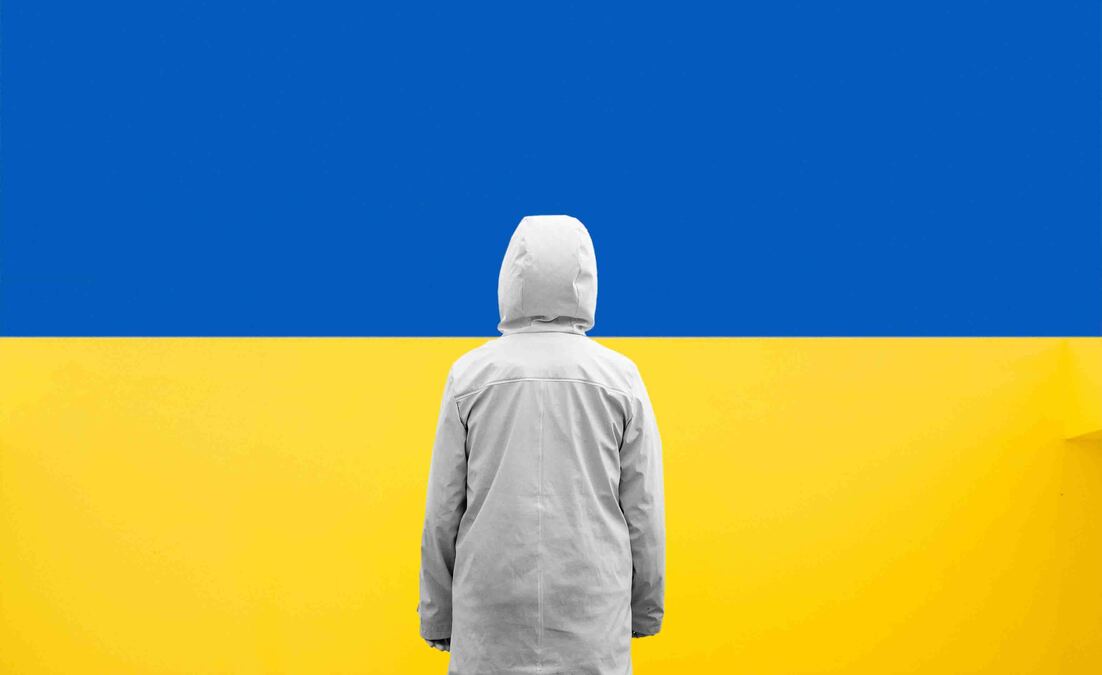Published:

Thousands of Ukrainian families across the country are facing homelessness this winter, new research conducted by Heriot-Watt University for the British Red Cross reveals.
Ukrainian families are struggling to find safe and warm homes here in the UK, with around 6,220 families expected to have applied for homelessness support by the end of this financial year, a rise of 13 per cent from the previous year.
The research was conducted by housing and urban economics academic Professor Glen Bramley from the Institute for Social Policy, Housing, Equalities Research (I-SPHERE) who found that Ukrainian families are four times more likely to have to register as homeless or face precarious living arrangements, compared with the general UK population.
What is particularly distressing is that the UK housing system is already under strain but even where there is availability, many individuals who have travelled here from Ukraine are unable to access the support they so desperately need due to a range of barriers such as lack of rental deposits or guarantors, or exclusion from local authority schemes.
There are several factors that put Ukrainians at risk, including the breakdown of relationships with host families, language barriers and difficulty navigating the labour and housing markets. This means that men, women and children who have sought safety from the conflict in Ukraine are more likely to end up sofa surfing, staying in hostels, living in tents, or even sleeping on the streets.
The British Red Cross warns this additional housing pressure comes at a time when homelessness and housing demand is rising more widely in the UK. The charity is also warning that without more government support, the risk of homelessness for Ukrainian refugees will increase even further.
Olivia Field, British Red Cross Head of Policy and Advocacy said: “This winter we expect thousands of men, women and children from Ukraine to become homeless here in the UK. British Red Cross teams are increasingly seeing how difficult it is for Ukrainians to get the help and support they need to find long-term housing. They are often unable to meet upfront rental costs and can be excluded from local authority schemes that help prevent homelessness.
“We also know that many host families, who generously opened their homes, are now struggling to continue to do so due to the cost-of-living crisis.
“We want government to increase the support available to host families by extending the ‘thank you' payments for the third year of sponsorship to Homes for Ukraine hosts and make this support available to hosts on the Family Scheme too. Government also needs to tackle barriers that are preventing Ukrainian families from being able to rent homes, so people can live in dignity and keep a roof over their heads this winter.”
Professor Glen Bramley, Heriot-Watt University said: “This report reveals the high level of homelessness risk which individuals and families, who have already experienced the trauma of war, are likely to face this winter. What is particularly distressing is that the UK housing system is already under strain but even where there is availability, many individuals who have travelled here from Ukraine are unable to access the support they so desperately need due to a range of barriers such as lack of rental deposits or guarantors, or exclusion from local authority schemes. We hope this research will demonstrate the scale of homelessness risk and prompt immediate action as temperatures start to drop across the country.”
Viktoriia is one of the people being supported by the British Red Cross. She fled the conflict in Ukraine and came to the UK under the Homes for Ukraine Scheme with her disabled mother and seven-year-old son. Relieved to be safe when she came to the UK, Viktoriia wasn't expecting to face the threat of homelessness just six months later.
Speaking of her own threat of homelessness, Viktoriia said: “I was worried we would be out on the street. I had no idea what to do. It is stressful because we don't know what is going to happen to us next. We are not allowed to apply for citizenship, we are working non-stop, and we don't know where our future is. After Covid and the war, we just want to be able to plan our future.”